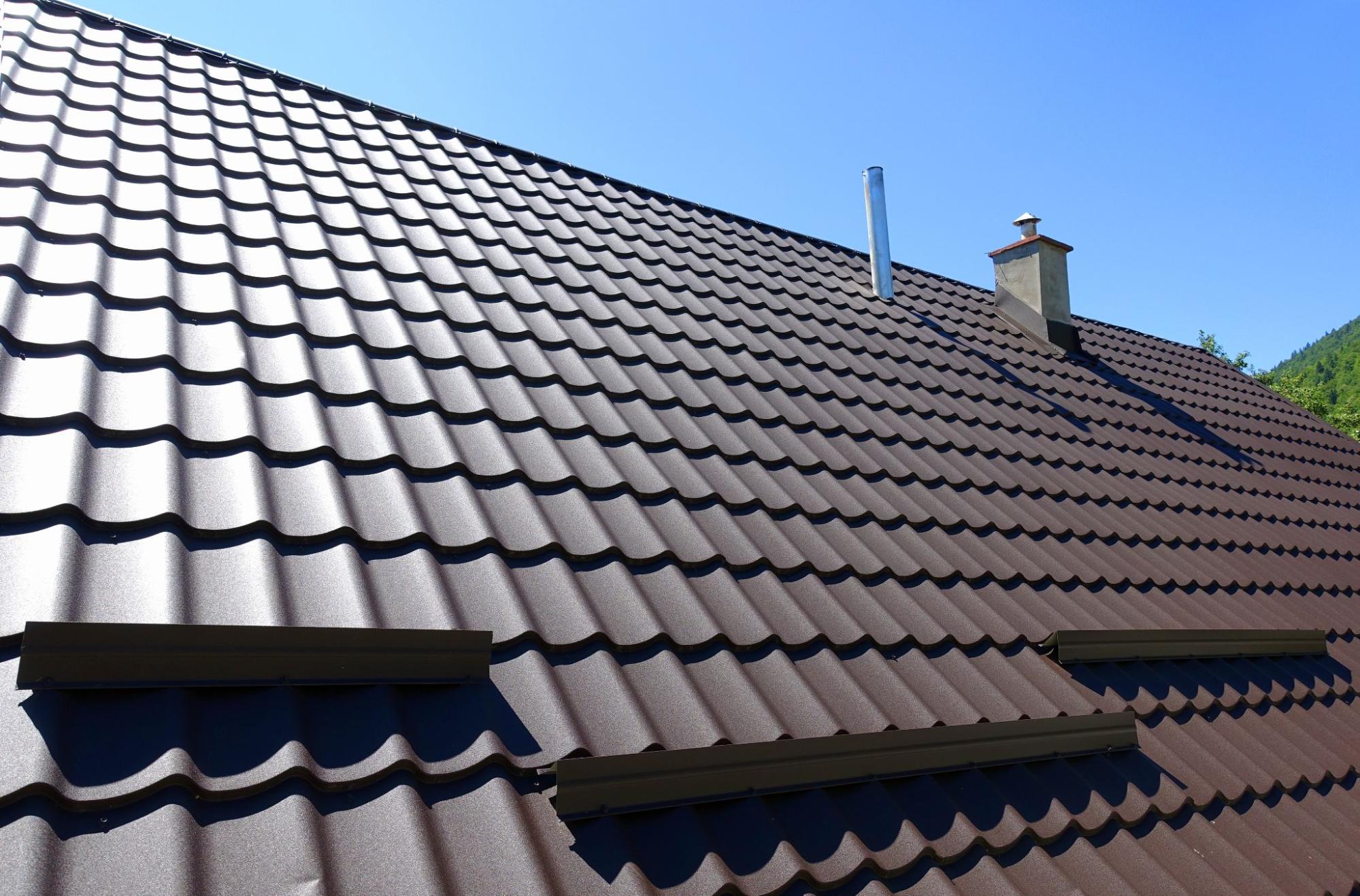Are you considering metal roofing for an upcoming roof replacement? Or perhaps you’re weighing roofing options for a building under construction? Regardless of the type of roofing project you’re planning, it’s important to have at least a basic understanding of the benefits and drawbacks of different roofing materials.
With that understanding, you can then make an informed decision about the type of roofing that’s best for your needs, design goals, and budget. Metal roofing offers several advantages for both residential and commercial buildings, and while its benefits generally outweigh its drawbacks, metal does carry a few potential disadvantages in certain situations.
Let’s take a look at the pros and cons of metal roofing installation.
Metal Roofing Pro: Long Lifespan
Metal is one of the longest-lasting roofing materials on the market today, boasting an average lifespan of 50–75 years. When it’s properly installed and maintained, a metal roof may even last longer than that.
Presently, only clay and slate roofing have demonstrated longer lifespans than metal, but both of these materials are significantly more expensive. In most cases, tile roofing ends up costing upward of $300 or more per square.
Metal Roofing Pro: Durability
If you’re in the market for a highly durable roofing material, metal is an excellent choice. As one of the most sturdy types of roofing on the market today, metal boasts several impressive characteristics, including:
- Class A fire-resistance rating. Metal roofing will not spark or catch fire, and it can also help slow fire spread from other, more flammable building materials.
- Corrosion resistance. Some metals are naturally corrosion-resistant, while others feature specialty coatings that prevent degradation.
- Wind resistance up to 140 mph. Some types can also withstand gusts of up to 180 mph.
- Rot resistance. Metal is naturally impervious to water-related rot, as well as the development of organic growths like moss and lichen.
Metal Roofing Pro: Boosts Energy Efficiency
All metal roofs are, by their nature, reflective. And because metal naturally reflects solar energy back into the surrounding atmosphere, it helps keep indoor temperatures steady. Some types of metal roofing can reflect up to 90% of the solar energy that hits them. With a metal roof, both residential and commercial buildings can cut annual energy costs by up to 40%.
Metal Roofing Pro: Eco-Friendly
Unlike traditional asphalt shingles and some other popular roofing materials, metal is fully recyclable. So when a metal roof reaches the end of its lifespan, it can be processed down and reused, greatly reducing its impact on the environment.
Even better, many types of metal roofing are made from at least 25% recycled materials, and steel can be repeatedly recycled without a loss of strength. Installing a metal roof not only helps cut down on trash and emissions from the outset, but it also helps reduce pollution even decades in the future.
Metal Roofing Pro: Multiple Design Options
Perhaps surprisingly, metal roofing is available in a wide variety of colors and design options, making it remarkably versatile in the aesthetic department. Metal can closely mimic the appearance of other roofing materials, such as clay, slate, and wood shake, and it can also be installed in various patterns to complement a variety of exterior designs.
Metal Roofing Pro: Low Maintenance
Compared to many other roofing materials, metal’s routine maintenance needs are very low. Like all types of roofing, it does require periodic inspections and cleaning, but aside from that, there’s not much you need to do to maintain a metal roof.
It’s important to note, however, that in our Texas climate, certain roofing components (namely screws and washers) may need periodic replacement at 8-to-12-year intervals. Sun exposure and weather events can cause washer and screw deterioration, so it’s important to keep an eye on those elements to determine when or if replacements are required.
Metal Roofing Con: Risk of Denting
Although metal is highly durable, when flying or falling objects (hail, tree branches, storm debris) collide with a metal roof, they may leave behind small dents. Generally speaking, lower-quality metals are more susceptible to denting, while premium-quality metals at higher price points are more durable and will resist impact-related denting much better.
Metal Roofing Con: Higher Cost
Metal roofing’s durability and longevity make it quite a bit more expensive than many other roofing materials on the market. However, a metal roof’s considerable lifespan does make the initial investment quite cost-effective over the long term.
Depending on the type and quality of metal, you can generally expect to pay $75 to $200 per roofing square (which is 10 feet by 10 feet or 100 square feet) installed.
Contact Alpine Sheet Metal Systems for a Metal Roofing Quote
If you’re considering metal roofing for a residential or commercial building in the Dallas or Fort Worth area, get in touch with our team at Alpine Sheet Metal Systems for a free quote! For more than 20 years, we’ve specialized in custom metal roofing fabrication and installation, and our award-winning customer service and premium-quality workmanship are unmatched. To learn more or get started, give us a call today at 972-556-3825 or contact us online to get a quote, and we’ll be in touch.

